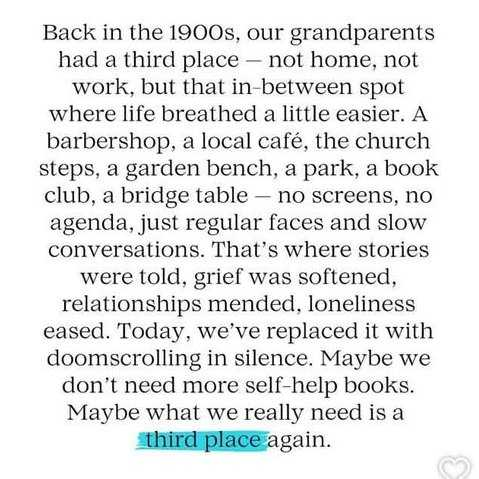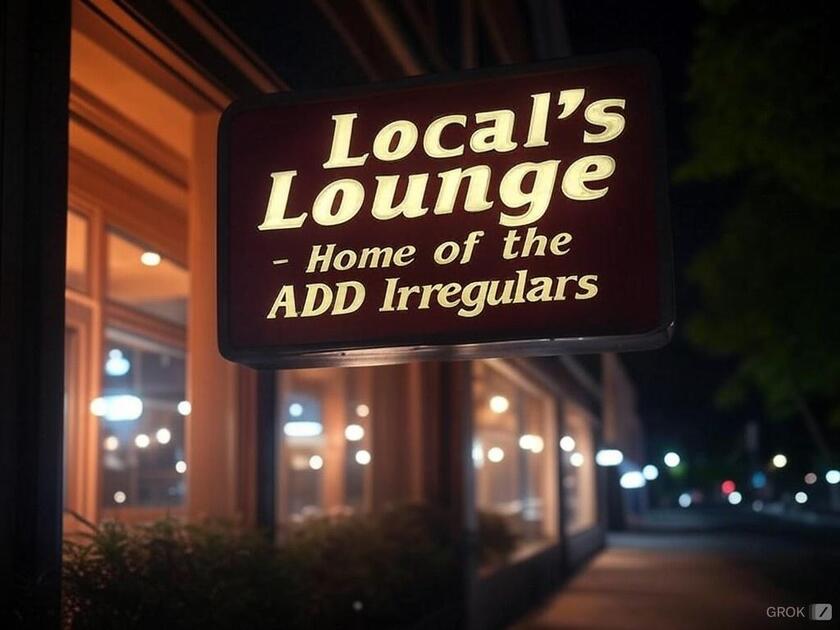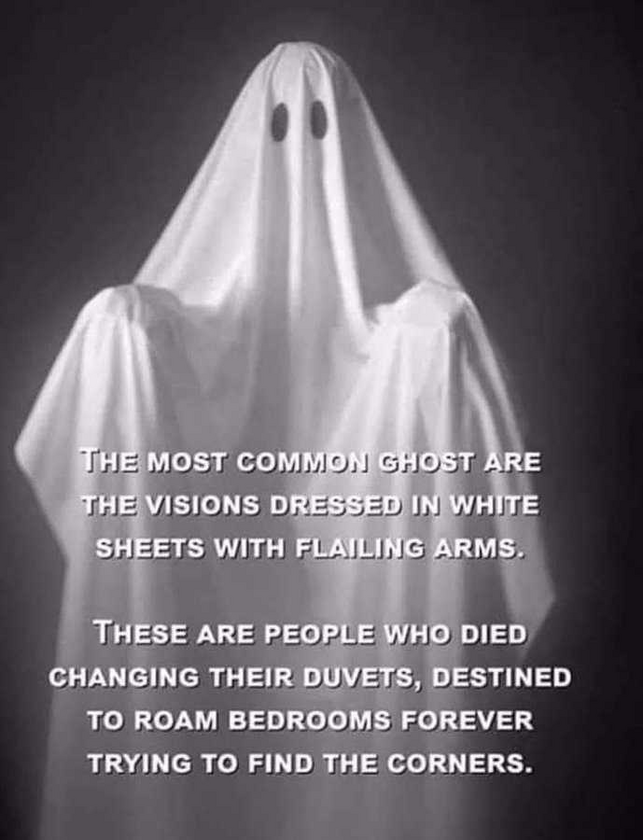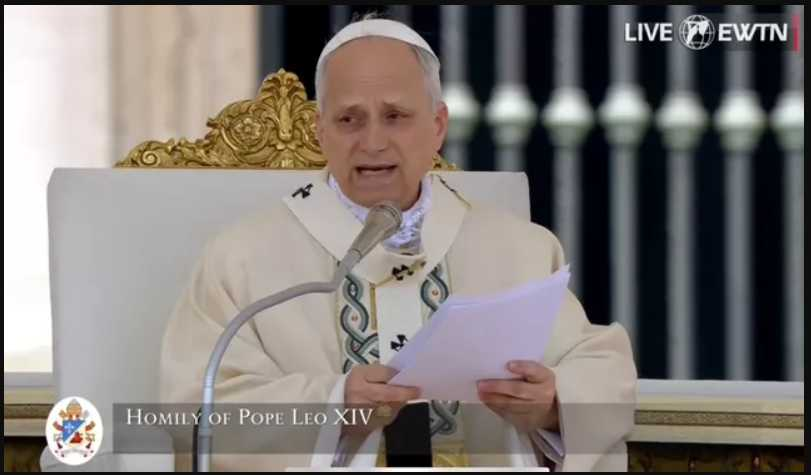Good day all,
My thoughts on the Holy Father's homily in bold print. I see many signs of hopefulness in his homily and I am praying greater clarity and unity from Pope Leo. The world will reject his clarity since it likes spiritual ambiguity and moral relativism, but I am hoping for a less divisive Pope than Francis. - Fr. Tom
Dear Brother Cardinals, Brother Bishops and Priests, Distinguished Authorities and Members of the Diplomatic Corps, and those who traveled here for the Jubilee of Confraternities, Brothers and Sisters:
I greet all of you with a heart full of gratitude at the beginning of the ministry that has been entrusted to me. St. Augustine wrote: “Lord, you have made us for yourself, and our heart is restless until it rests in you” (Confessions, I: 1,1).
In these days, we have experienced intense emotions. The death of Pope Francis filled our hearts with sadness. In those difficult hours, we felt like the crowds that the Gospel says were “like sheep without a shepherd” (Matthew 9:36). Yet on Easter Sunday, we received his final blessing and, in the light of the Resurrection, we experienced the days that followed in the certainty that the Lord never abandons his people, but gathers them when they are scattered and guards them “as a shepherd guards his flock” (Jeremiah 31:10).
In this spirit of faith, the College of Cardinals met for the conclave. Coming from different backgrounds and experiences, we placed in God’s hands our desire to elect the new Successor of Peter, the Bishop of Rome, a shepherd capable of preserving the rich heritage of the Christian faith and, at the same time, looking to the future, in order to confront the questions, concerns and challenges of today’s world. I never got the impression that Pope Francis considered it a rich heritage, but often just an interpretation and exposition of the faith for a given time and culture. I am probably too harsh on the past Pope, but he was not one known for clarity. I am hoping that the use of the word heritage indicates a more positive few of the past as a treasury of faith to be preserved rather than a liability to be dismissed.
Accompanied by your prayers, we could feel the working of the Holy Spirit, who was able to bring us into harmony, like musical instruments, so that our heartstrings could vibrate in a single melody. I was chosen, without any merit of my own, and now, with fear and trembling, I come to you as a brother, who desires to be the servant of your faith and your joy, walking with you on the path of God’s love, for he wants us all to be united in one family. The Holy Father uses phrase from St. Clement of Rome (Pope #3) and seems to borrow some additional imagery from St. Augustine like he did in his opening remarks.
Love and unity: These are the two dimensions of the mission entrusted to Peter by Jesus. We see this in today’s Gospel, which takes us to the Sea of Galilee, where Jesus began the mission he received from the Father: to be a “fisher” of humanity in order to draw it up from the waters of evil and death. Walking along the shore, he had called Peter and the other first disciples to be, like him, “fishers of men.”
Now, after the Resurrection, it is up to them to carry on this mission, to cast their nets again and again, to bring the hope of the Gospel into the “waters” of the world, to sail the seas of life so that all may experience God’s embrace. Pope Benedict used the image of sailing the seas of life at the dawn of the digital age after his election as Pope. I suspect Pope Francis might have as well, but when you stop paying too much attention you miss little details. I prayed for Pope Francis his entire pontificate, but I didn’t give him much active attention.
How can Peter carry out this task? The Gospel tells us that it is possible only because his own life was touched by the infinite and unconditional love of God, even in the hour of his failure and denial. For this reason, when Jesus addresses Peter, the Gospel uses the Greek verb agapáo, which refers to the love that God has for us, to the offering of himself without reserve and without calculation. Whereas the verb used in Peter’s response describes the love of friendship that we have for one another.
Consequently, when Jesus asks Peter, “Simon, son of John, do you love me more than these?” (John 21:16), he is referring to the love of the Father. It is as if Jesus said to him, “Only if you have known and experienced this love of God, which never fails, will you be able to feed my lambs. Only in the love of God the Father will you be able to love your brothers and sisters with that same ‘more,’ that is, by offering your life for your brothers and sisters.”
Peter is thus entrusted with the task of “loving more” and giving his life for the flock. The ministry of Peter is distinguished precisely by this self-sacrificing love, because the Church of Rome presides in charity, and its true authority is the charity of Christ. It is never a question of capturing others by force, by religious propaganda, or by means of power. Instead, it is always and only a question of loving as Jesus did. The 21st chapter of John is so rich. It is one of my favorite passages to reflect upon. It is how God heals us of our sins. It is both a healing moment and a recommissioning of sorts. Jesus can’t have Peter moping through life as a the denier, Jesus is calling him to shepherd the flock.
The Apostle Peter himself tells us that Jesus “is the stone that was rejected by you, the builders, and has become the cornerstone” (Acts 4:11). Moreover, if the rock is Christ, Peter must shepherd the flock without ever yielding to the temptation to be an autocrat, lording it over those entrusted to him (cf. 1 Peter 5:3). On the contrary, he is called to serve the faith of his brothers and sisters and to walk alongside them, for all of us are “living stones” (1 Peter 2:5), called through our baptism to build God’s house in fraternal communion, in the harmony of the Spirit, in the coexistence of diversity. In the words of St. Augustine: “The Church consists of all those who are in harmony with their
brothers and sisters and who love their neighbour” (Sermons 359, 9).
Brothers and sisters, I would like that our first great desire be for a united Church, a sign of unity and communion, which becomes a leaven for a reconciled world. In our time, we still see too much discord, too many wounds caused by hatred, violence, prejudice, the fear of difference, and an economic paradigm that exploits the Earth’s resources and marginalizes the poorest.
For our part, we want to be a small leaven of unity, communion and fraternity within the world. We want to say to the world, with humility and joy: Look to Christ! Come closer to him! Welcome his word that enlightens and consoles! Listen to his offer of love and become his one family: In the one Christ, we are one. This is the path to follow together, among ourselves, but also with our sister Christian churches, with those who follow other religious paths, with those who are searching for God, with all women and men of goodwill, in order to build a new world where peace reigns! Look to Christ! Pope Leo goes right into the invitation to listen and reflect upon the word of God. The invitation is unity through conversion.
This is the missionary spirit that must animate us; not closing ourselves off in our small groups, nor feeling superior to the world. We are called to offer God’s love to everyone, in order to achieve that unity that does not cancel out differences but values the personal history of each person and the social and religious culture of every people. The church is always missionary. Conversion to Christ does not annihilate all differences, but rather is a process of refinement, keeping what can be of service to the Gospel and losing what is opposed to it or hinders it. Getting rid of sin is just the beginning, putting on the mind and heart of Christ is the challenge. I pray for our new Holy Father that he may be faithful, courageous and genuinely kind.
Brothers and sisters, this is the hour for love! The heart of the Gospel is the love of God that makes us brothers and sisters. With my predecessor Leo XIII, we can ask ourselves today: If this criterion “were to prevail in the world, would not every conflict cease and peace return?” (Rerum Novarum, 21).
With the light and the strength of the Holy Spirit, let us build a Church founded on God’s love, a sign of unity, a missionary Church that opens its arms to the world, proclaims the word, allows itself to be made “restless” by history, and becomes a leaven of harmony for humanity. Together, as one people, as brothers and sisters, let us walk towards God and love one another. Surprisingly short homily, bishops can often go on forever.




























